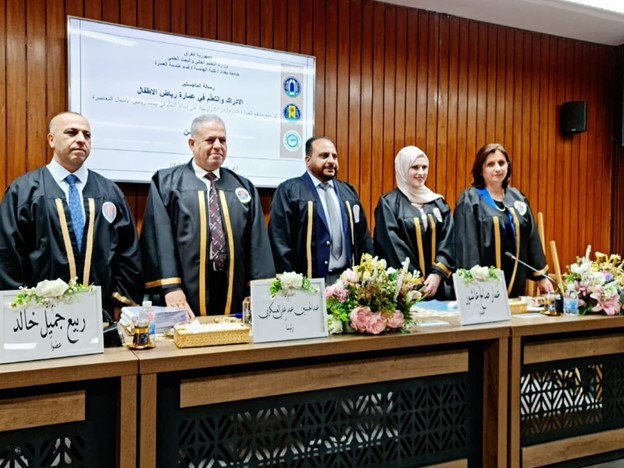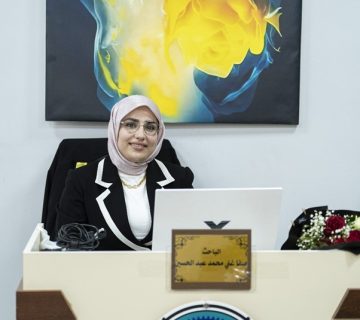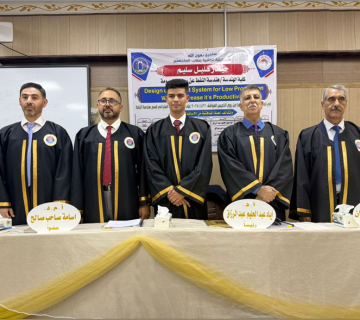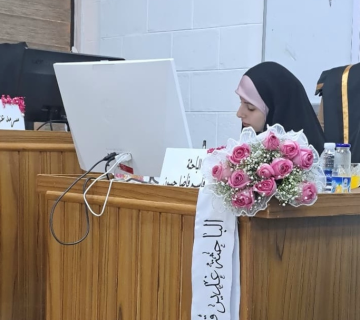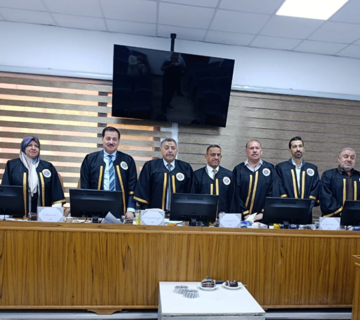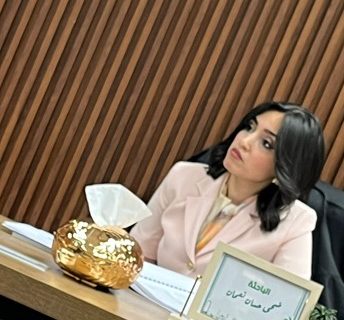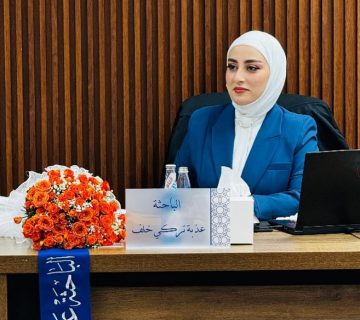The College of Engineering at the University of Baghdad held the public defense of Master’s student Shahd Khalid Hassan from the Department of Architectural Engineering for her thesis entitled:
“Perception and Learning in Kindergarten Architecture: The Impact of Integrating Biophilic and Technological Architectural Approaches on Learning Patterns in Contemporary Kindergarten Environments” on Sunday, 31/08/2025, at Mohammed Makkiyah Hall at 9:00 AM, under the supervision of Prof. Dr. Huda Abdul Sahib Al-Alwan.
The research was based on the concept that kindergartens constitute a rich educational environment, forming a foundational stage for developing children’s cognitive, sensory, and social abilities. This stage contributes to establishing psychological and behavioral foundations that accompany the child throughout their educational and social journey.
Recent studies indicate that a child’s perception is closely linked to the characteristics of the spaces they interact with, which provide sensory stimuli, movement experiences, and social interactions that nurture various skills. Accordingly, the research aimed to present a comprehensive vision connecting child perception and learning patterns in early childhood with biophilic and technological design strategies that support this perception and learning.
The study aimed to develop a theoretical framework illustrating the impact of integrating biophilic and technological architectural approaches in kindergarten design, from which design strategies could be derived to create educational spaces that support cognitive development and diverse learning patterns in children. This theoretical framework was applied to selected global and local kindergarten models to test the effectiveness of these strategies, ultimately deriving design standards for child-friendly architecture.
The research discussed the biophilic and technological architectural approaches, demonstrating how these approaches contribute to creating stimulating educational environments that support the six learning patterns of children. It also explored design mechanisms that enhance perception and educational development, highlighting how the integration of biophilic design and interactive technology in addressing children’s physiological, psychological, cognitive, and emotional needs allows designers to develop flexible solutions supporting the learning process in kindergartens.
The defense committee consisted of:
-
Asst. Prof. Dr. Abdul Hussein Al-Askari – Chair (Architectural Philosophy)
-
Asst. Prof. Dr. Rabi’ Jamil Khalid – Member (Architectural Design, University of Wasit, College of Engineering, Department of Architecture)
-
Dr. Ammar Saleh Ashour – Member (Architectural Theory)
-
Prof. Dr. Huda Abdul Sahib Al-Alwan – Supervisor (Architecture, Environment, and Technology)

